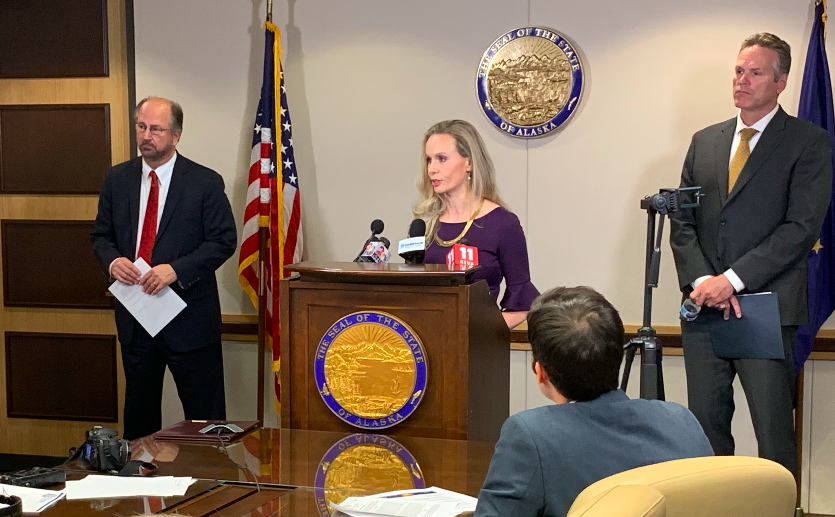Alaska is the first in the nation to enforce the Janus ruling of the Supreme Court. But expect a lawsuit from the public employee unions.
Gov. Michael Dunleavy, Attorney General Kevin Clarkson and Commissioner of Administration Kelly Tshibaka today announced an administrative order to enforce the law regarding the collection of public employee union dues.
“When I took office I made a commitment to the people of Alaska that I would follow the constitution,” Dunleavy said.
“This administrative order is the result of the Supreme Court ruling known as Janus, which states that public employees have the right to freely associate with unions,” said Dunleavy. “As governor of Alaska, I am legally obligated and compelled to ensure state employees’ free speech rights are protected.”
“A decision to pay or not pay union dues is the employees’ decisions to make, said Tshibaka. “The Department of Administration is committed to informing our employees about their constitutional rights so they can make informed choices that are best for themselves.”
Clarkson said that the way the Walker Administration had enforced the Janus ruling was to allow employees a 10-day opt-out period per year, which Clarkson says is unconstitutional.
The Dunleavy Administration intends to create a method that sets up an affirmative “opt-in” system that the unions won’t control.
In Janus, the Supreme Court held that 1) government employees cannot be required to pay dues or fees to a public sector union as a condition of employment, and 2) no money can be deducted by employers for public sector unions “unless the employee affirmatively consents to pay.” Public employers, such as the State, cannot according to the court, deduct union dues or fees from an employee’s wages unless the employer has “clear and compelling evidence” that the employee has authorized such deductions.
The administrative order only applies to State of Alaska employees currently represented by a union.
The administrative order directs the Alaska Department of Administration to create an initial opt-in program where unionized State employees decide, online or in written form, if they want union dues deducted from their paychecks, which would be revocable at any time.
“A decision to pay or not pay union dues is the employees’ decision to make,”Tshibaka said. “The Department of Administration is committed to informing our employees about their constitutional rights so they can make informed choices that are best for themselves.”
The administrative order is based on Clarkson’s legal opinion on the Janus decision that found the State is not in compliance with the Supreme Court’s ruling.
“The State has put itself at risk of unwittingly burdening the First Amendment rights of its own employees. A course correction is required,” Clarkson said.
